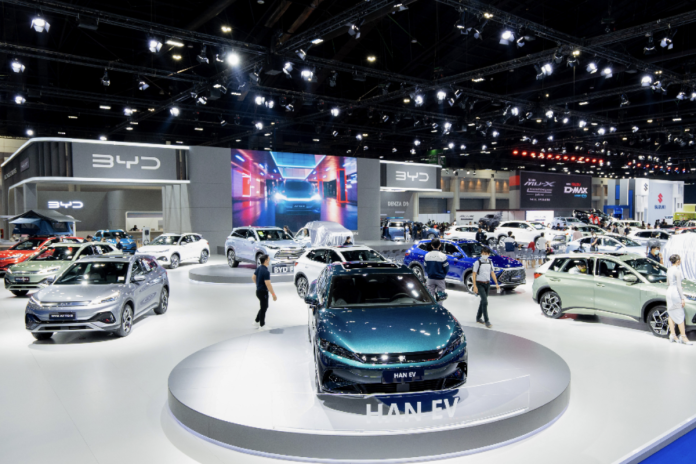The proposal from BYD Motors and Megha Engineering and Infrastructures Ltd (MEIL) to set up a $1 billion four-wheeler manufacturing facility in India has reportedly been rejected by the Centre.
The application, submitted to the Department for Promotion of Industry and Internal Trade (DPIIT), outlined plans for an electric vehicle plant in Hyderabad.
To assess the investment proposal, the DPIIT sought input from various departments. During the discussions, concerns regarding security issues related to Chinese investments in India were raised.
During the evaluation process of BYD Motors and Megha Engineering and Infrastructures Ltd’s proposal, security concerns were raised, leading to its rejection by the Centre.
“Security concerns with respect to Chinese investments in India were flagged during the deliberations,” an official was quoted as saying by The Economic Times.
Existing regulations do not permit such investments, according to a second official involved in the discussions.
The venture reportedly proposed to the DPIIT that it would manufacture 10,000-15,000 electric cars annually.
MEIL would provide the capital, while BYD would contribute the technology and know-how, one of the persons associated with the plant was cited in the report as saying.
BYD, the world’s leading electric vehicle manufacturer in terms of sales, has already introduced two EV models in India.
Additionally, BYD is providing technical assistance to Olectra Greentech, a subsidiary of MEIL, for its electric buses.
Olectra has received orders for 2,000 buses, valued at Rs 3,000-3,500 crore, which it plans to deliver within the next 12-18 months.
Earlier in 2020, India amended its foreign direct investment policy, making government approval mandatory for investments coming from countries it shares land-border with.
A committee headed by the home secretary decides on such proposals.
The policy does not mention any country but it was specifically designed to prevent Chinese companies from acquiring Indian entities.
Further, the DPIIT is also scrutinising Chinese automakers having ties with Indian companies following allegations that some of them have on-boarded proxy Indian partners to act as a front for them, without any strategic long-term intention of moving manufacturing capabilities to India.


